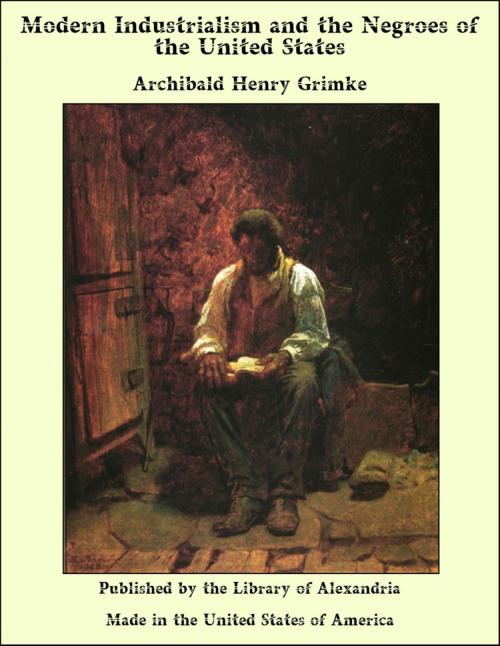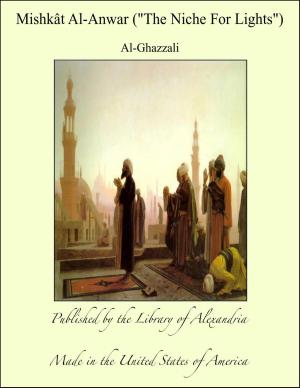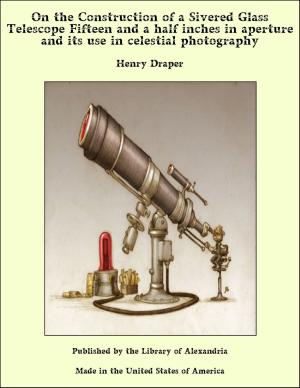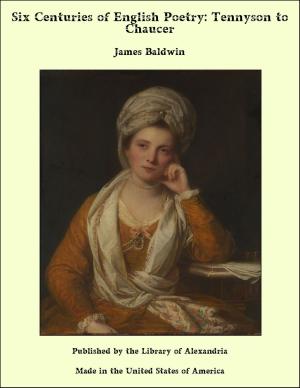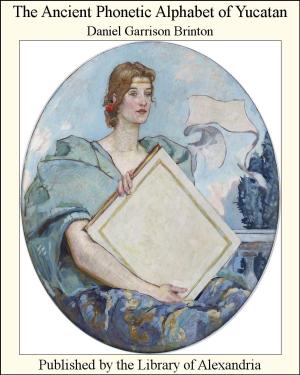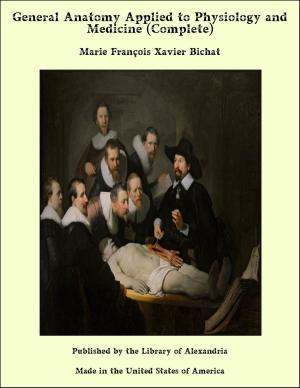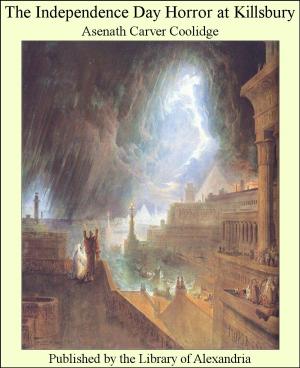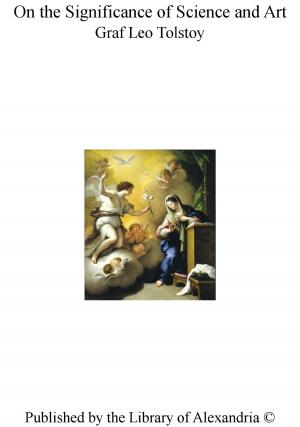Modern Industrialism and the Negroes of the United States
Nonfiction, Religion & Spirituality, New Age, History, Fiction & Literature| Author: | Archibald Henry Grimke | ISBN: | 9781465588777 |
| Publisher: | Library of Alexandria | Publication: | March 8, 2015 |
| Imprint: | Language: | English |
| Author: | Archibald Henry Grimke |
| ISBN: | 9781465588777 |
| Publisher: | Library of Alexandria |
| Publication: | March 8, 2015 |
| Imprint: | |
| Language: | English |
What is that tremendous system of production, organization and struggle known as modern industrialism going to do with the Negroes of the United States? Passing into its huge hopper and between its upper and nether millstones, are they to come out grist for the nation, or mere chaff, doomed like the Indian to ultimate extinction in the raging fires of racial and industrial rivalry and progress? Sphinx’s riddle, say you, which yet awaits its Oedipus? Perhaps, though an examination of the past may show us that the riddle is not awaiting its Oedipus so much as his answer, which he has been writing slowly, word by word, and inexorably, in the social evolution of the republic for a century, and is writing still. If we succeed in reading aright what has already been inscribed by that iron pen, may we not guess the remainder, and so catch from afar the fateful answer? Possibly. Then let us try. With unequaled sagacity the founders of the American Republic reared, without prototype or precedent, its solid walls and stately columns on the broad basis of human equality, and of certain inalienable rights, such as life, liberty and the pursuit of happiness, to which they declared all men entitled. Deep they sunk their foundation piles on the consent of the governed, and committed fearlessly, sublimely, the new state to the people. But there was an exception, and on this exception hangs our tale, and turns the dark drama of our national history. Those founders had to deal with many novel and perplexing problems of construction, but none seemed so difficult to handle as were those which grew out of the presence of African slavery, as an industrial system, in several of the States. At the threshold of national existence these men were constrained by circumstances to make an exception to the primary principles which they had placed at the bottom of their untried and bold experiment in popular government. This sacrifice of fundamental truth carried along with it one of the sternest retributions of history. For it involved the admission on equal footing into the Union of a fundamental error in ethics and economics, with which our new industrial democracy was forced presently to engage in deadly strife for existence and survivorship.
What is that tremendous system of production, organization and struggle known as modern industrialism going to do with the Negroes of the United States? Passing into its huge hopper and between its upper and nether millstones, are they to come out grist for the nation, or mere chaff, doomed like the Indian to ultimate extinction in the raging fires of racial and industrial rivalry and progress? Sphinx’s riddle, say you, which yet awaits its Oedipus? Perhaps, though an examination of the past may show us that the riddle is not awaiting its Oedipus so much as his answer, which he has been writing slowly, word by word, and inexorably, in the social evolution of the republic for a century, and is writing still. If we succeed in reading aright what has already been inscribed by that iron pen, may we not guess the remainder, and so catch from afar the fateful answer? Possibly. Then let us try. With unequaled sagacity the founders of the American Republic reared, without prototype or precedent, its solid walls and stately columns on the broad basis of human equality, and of certain inalienable rights, such as life, liberty and the pursuit of happiness, to which they declared all men entitled. Deep they sunk their foundation piles on the consent of the governed, and committed fearlessly, sublimely, the new state to the people. But there was an exception, and on this exception hangs our tale, and turns the dark drama of our national history. Those founders had to deal with many novel and perplexing problems of construction, but none seemed so difficult to handle as were those which grew out of the presence of African slavery, as an industrial system, in several of the States. At the threshold of national existence these men were constrained by circumstances to make an exception to the primary principles which they had placed at the bottom of their untried and bold experiment in popular government. This sacrifice of fundamental truth carried along with it one of the sternest retributions of history. For it involved the admission on equal footing into the Union of a fundamental error in ethics and economics, with which our new industrial democracy was forced presently to engage in deadly strife for existence and survivorship.
